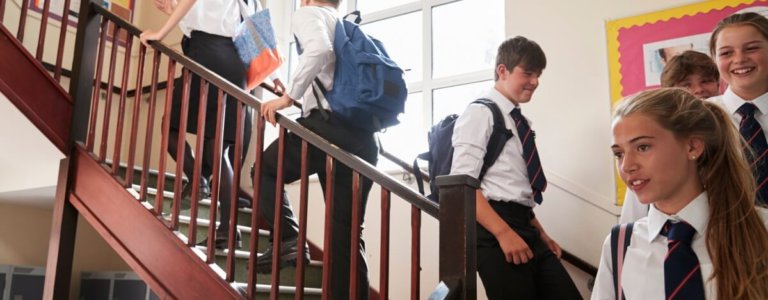
Year 13 exam results this year reveal that nine out of 10 independent schools are placing students in exam alternatives to the popular A-Level study route.
The number of schools offering BTECs (Business and Technology Education Council), Pre-Us and EPQ (Extended Project Qualifications) are rising, according to the results published by the Independent Schools Council (ISC). TES noted 2019 saw 14,901 independent school entries for alternative qualifications, including the International Baccalaureate (IB). The A-Level course, however, continues to be the most dominant, representing 92.4 percent of this year’s cohort.
This was followed by 10.2 percent of pupils taking a Pre-U, 3.6 percent taking a BTEC and 5.8 percent taking at least one IB subject. Candidates often take these qualifications alongside A-Levels.
Overall, 90% of ISC schools had results for exams other than just A-levels this year. This reflects independent schools’ commitment to provide pupils with a broad education, best suited to their individual interests and needs https://t.co/6wQC9xR4Ut pic.twitter.com/Ik3S2fnD5h
— Independent Schools (@ISC_schools) August 28, 2019
The trend reflects independent schools’ “commitment to provide pupils a broad education”, said ISC Chairman, Barnaby Lenon, with opportunities to access the courses best suited to their individual interests and needs.
Describing the trend as “encouraging”, acknowledging that these alternatives “provide different ways through which young people can explore the subjects they are most passionate about”.
“Regardless of whether a pupil wants to pursue a more academic or vocational pathway, independent schools are well-placed to enable them access to the route that will best meet their needs. This year’s results show that schools are offering a wider array of educational opportunities and effectively supporting pupils to fulfil their potential.
“The hard work and dedication demonstrated by pupils and their teachers should not be underestimated – congratulations to them all for their achievements. Any exam is stressful at the best of times, even more so during periods of major reform such as this.”
The ISC is a body representing seven associations of independent schools, their heads, bursars and governors. This includes over 1,300 independent schools in the UK and overseas, educating half a million children each year.
Among the privately educated students who opted for an A-Level alternative, the International Baccalaureate (IB) was the most popular option. Among this group, this year’s IB Diploma candidates scored an average of 36, roughly equivalent to 4.5 As at A-Level. More than a third scored 39 points or more, with one-quarter of all pupils (51 pupils) obtaining the maximum score of 45.
Based on the data collected from 498 ISC schools (representing 36,019 candidates), the number of candidates taking the Pre-U, EPQ and BTEC increased 6.7 percent, 13.3 percent and 17 percent, respectively.
The BTEC qualification was taken by a significantly growing number of schools this year. Four years ago, only 694 pupils at 51 schools took this course. This year, 1,296 pupils at 100 independent schools sat for the qualification.
From 1,516 candidates in 2015, the Pre-U had 3,677 candidates this year. Four years ago, only 49 schools offered the Pre-U qualification, a figure that has more than doubled with 107 schools offering it this year.
Liked this? Then you’ll love…
A-Level results 2019: A look at who’s going to university this year
UK: Record number of students gaining admission after A Level results – UCAS








